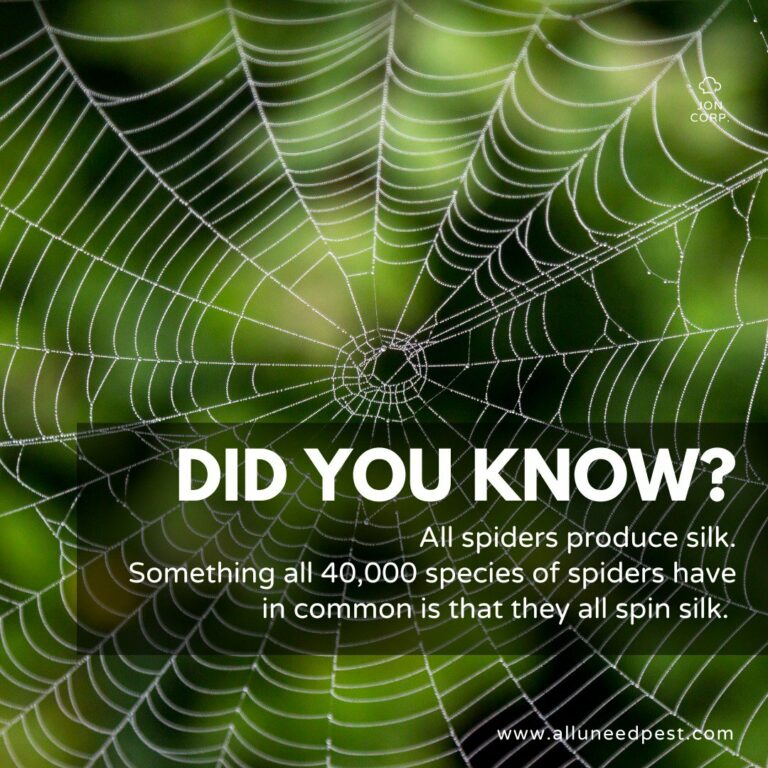Fun Facts About Spiders
Published: January 9, 2024

Spiders are fascinating creatures that often evoke a mix of curiosity and fear. In this blog post, we'll explore some interesting facts about spiders that you may not have known before. From their unique features to their intriguing behaviors, spiders have plenty to offer in terms of wonder and amazement so lets look at some fun facts about spiders.

Tarantulas: The Giants Among Spiders
One of the most well-known types of spiders is the tarantula. These hairy arachnids are often associated with fear due to their size and appearance. However, it's important to note that not all tarantulas are dangerous or venomous.
Eight Eyes for a Different Perspective
Did you know that most spiders have eight eyes? While they may not have the same visual acuity as humans, spiders use their multiple eyes to detect movement and light variations. This allows them to navigate their surroundings and hunt for prey more effectively.
Spiderlings: Tiny Versions of Their Parents
When baby spiders hatch from their eggs, they are called spiderlings. These miniature versions of adult spiders go through a process called molting, where they shed their exoskeletons as they grow. It's fascinating to witness the transformation from tiny spiderlings into fully grown arachnids.
Teeth: Not Just for Chewing
Spiders have specialized mouthparts called chelicerae, which contain their fangs and venom glands. These teeth-like structures serve multiple purposes, including capturing and immobilizing prey. While some spider bites can be harmful to humans, most species pose little threat unless provoked or mishandled.
Silk Glands: Nature's Master Weavers
Spider silk is an incredible material with various uses in nature. Spiders produce silk from specialized glands located in their abdomen. They can spin different types of silk for different purposes, such as building webs for catching prey or creating protective shelters. They also ingest old silk and recycle it for their new webs.
Tube-Webs: A Unique Web Design
Not all spiders spin the classic circular web that we often associate with them. Some species, like tube-web spiders, create tubular-shaped webs instead. These webs serve as hidden traps for unsuspecting insects, allowing the spider to ambush its prey.
Mating Rituals: Complex and Intriguing
Spiders have diverse mating rituals that can range from elaborate courtship dances to more aggressive encounters. In some cases, males must approach females with caution to avoid becoming a potential meal themselves. It's a fascinating glimpse into the intricacies of spider behavior.
Scruffy Webs: Imperfect but Effective
While some spiders are known for their intricate and symmetrical webs, others create scruffy or irregular webs. These less refined structures still serve their purpose by capturing prey effectively. It goes to show that even in nature, perfection is not always necessary for success.
Spinnerets: The Silk Producers
Spinnerets are small appendages located at the rear end of a spider's abdomen. These organs are responsible for spinning silk threads used in web construction or other purposes. Spiders can control the thickness and stickiness of their silk by manipulating their spinnerets. They are known for spinning webs to catch flying insects and other creepy crawlies.
House Spiders: Our Uninvited Guests
House spiders are common arachnids found in homes around the world. While they may be unwelcome guests for some people, they play an essential role in controlling other insect populations indoors. House spiders typically build small webs and lay just one egg sac during their lifetime.
Spiders are remarkable creatures with unique adaptations and behaviors that continue to captivate scientists and enthusiasts alike. By learning more about these fascinating arachnids, we can gain a greater appreciation for the natural world around us.
So next time you spot a spider in your home or encounter one outdoors, take a moment to marvel at its incredible abilities and remember these fun facts about spiders! If you ever need anymore info on spiders or how to control a spider infestation reach out to All U Need Pest Control!